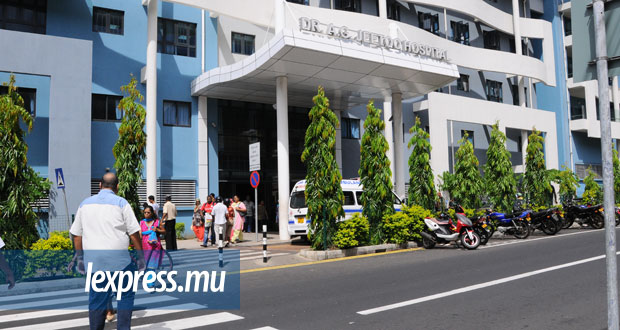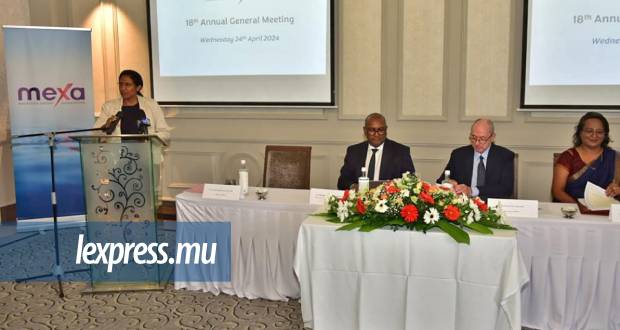Publicité
Letter to the Government of India: A call for transparency and an EIA of the Metro Express Project
Par
Partager cet article
Letter to the Government of India: A call for transparency and an EIA of the Metro Express Project

To his Excellency Shri Abhay Thakur,
High Commissioner of India to the Republic of Mauritius,
Sir,
We, Platform Moris Lanvironnman, are a network of environmental NGOs and community-based groups actively promoting the protection of the environment and sustainable development in Mauritius. Some of the organisations in the network have been in existence for over 20 years. We are writing this letter to the Government of India concerning the implementation of the Metro Express Project which is being partly funded through a grant/line of credit from your Government.
Although we recognize the need for an alternative mode of mass transport for our country, we do not agree with the manner in which the project has been fast-tracked against all principles of good governance as well as by using methods that are contrary to those of a democratic State. You will concur with us that a project that is supposed to be good for the people of Mauritius has not been the object of consultations with civil society.
Excellency, you may be aware that preliminary works associated with the Project have caused and are causing severe anguish among the local population in some areas where demolition works have started or are due to start. Today there is a general consensus in the country that the worst is still to come with the Metro Express. All this could have been avoided if an Environmental and Social Impact Assessment had been carried out and the proper environmental and social management framework including grievance mechanism, resettlement plan etc., had been put into place before construction works start.
Some of the impacts of the Metro Express Project will be of an irreversible nature, such as the displacement of families and demolition of homes and business buildings and sites; if not addressed in a consensual manner these will have long-lasting negative consequences that will persist during the operational phase of the Project. It is not surprising that most, if not all, international funding agencies classify mass transit systems as Category A for environmental and social assessment.
Instead of demonstrating that the Metro Express Project can be managed adequately environmentally and socially by putting the Project to scrutiny as per the Environmental Protection Act 2002, the Government of Mauritius went to the extent of promulgating a regulation for the specific delisting of the Metro Express Project from the List of Undertakings requiring an Environmental Impact Assessment (EIA) as per the Environment Protection Act 2002. Excellency, you will concur with us that this colourable measure is not what you expect from a democratic government.
In contrast, we recognize the democratic and good governance principles adhered to by Indian Authorities and Agencies to carry out implementation of mass transit systems in India despite the fact that there is no statutory requirement for EIAs for urban transport projects as per Notification of Ministry of Environment and Forests (MoEF, GoI) N°1533, dated 14.09.2006 as amended in 2009.
‘‘The project has been fasttracked against all principles of good governance.’’
In this regard, EIAs have been conducted for urban transport projects like the Delhi Metro, Mumbai Metro, Chennai Metro, Varanassi Metro, Ahmedabad BRTS, Jaipur Metro Rail and Lucknow Metro; projects your Excellency have cited as examples in your speech on the occasion of the inauguration of the Richelieu Depot on 28th September 2017.
These EIAs on urban transport projects have considered impacts due to project location, construction and operations on the natural environment (air quality, noise, water environment, soil, flora/green cover and so on) and on the social environment (socio-economic component, displacement of population, land use pattern along the proposed corridors). Furthermore, public consultations were also held and their outcome was described in the reports. Environmental Management Action Plans were also prepared prior to construction. For example, the EIA for Delhi Metro was prepared by RITES Ltd. More recently, in February 2016, RITES Ltd submitted the Detailed Project Report for Rail- Based Mass Transit System in Varanasi including an Environmental and Social Impact Assessment, which also caters for Project Affected Persons/ Families as per the Rehabilitation and Resettlement Policy of the Government of India in cases of land acquisitions. All the above-mentioned reports can be consulted on the internet.
Excellency, despite the good intention of the Government of India to contribute to the development of Mauritius, we wish to express our concern that the Metro Express Project could become a liability for your country as resentments not only from the affected population but the population in general will garner momentum as the negative environmental and social impacts become known.
Excellency, we have learnt from the press that a Joint Steering Committee composed of officials from the Government of India, of the Government of Mauritius, as well as of RITES Ltd - which is a Government of India Enterprise - has been set up. We believe that this is the opportunity for the Government of India to demonstrate its wisdom and prevail upon the local authorities to be totally transparent and disclose fully the Metro Express Project – its technical, economic and financial aspects. Furthermore, the authorities must carry out without delay an environmental and social impact assessment of the Metro Express Project and hold public consultations.
In light of the above, and in the interest of transparency, good governance and democratic practice, we humbly appeal to your Excellency to impart to the Joint Steering Committee our concerns as elaborated above. We consider this to be a sine qua non-condition to ensure the proper implementation of governmental policies and enforcement provisions necessary to meet the expectations of the well-being of the people of Mauritius and for the protection of the environment.
Publicité
Les plus récents






